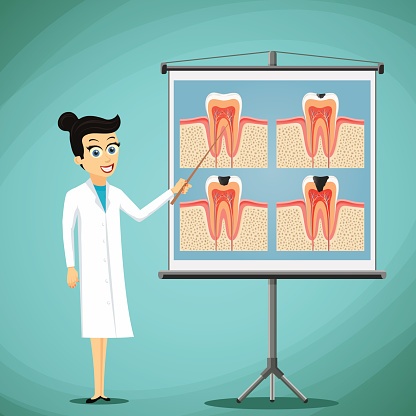By Mariah Chitouras on Jul 27, 2017 @ 11:47 AM
An abscessed tooth can be painful and traumatic. Your face may swell and your tooth and the surrounding gum tissue will likely be as painful as the tooth itself. What is a tooth abscess? Bluntly, it's a pocket of pus caused by a bacterial infection. The abscess can be at the tip of the root, deep inside the tooth, or in the gum surrounding the affected tooth. An abscessed tooth is a dental emergency, and most dentists will see you as quickly as possible -- usually on the day that you call them. That's because an untreated tooth abscess can actually lead to some pretty serious complications, some of which can be life-threatening!
If you have any of the following symptoms, you may have a tooth abscess and should contact your dentist immediately:
- a persistent, throbbing toothache
- extreme sensitivity to hot and cold substances
- pain or sensitivity when chewing or biting
- swelling in your face or cheek
- fever along with tooth sensitivity
The symptoms may start out mild enough that you don’t realize you have an abscess. That's why it's important to see your dentist for regular checkups and x-rays, which can detect an abscess that's only mildly symptomatic or asymptomatic (meaning it has no symptoms at all).
Treating a Tooth Abscess
Depending on your general dentist’s training, she may treat you in her office, or will refer you to an endodontist, who specializes in treating infected teeth and pulp (tissue). Initially, the endodontist will drain the infection and prescribe an antibiotic to treat any remaining infection. In some cases, he may be able to save an abscessed tooth with a root canal or oral surgery, however, in some cases the tooth may have to be removed.
Root Canal Treatment
A root canal is a procedure in which the endodontist removes the infection from the canals in your tooth, clean, shape and refill the canals, and then seal off the tooth. Your regular dentist will then restore the tooth with a filling or a crown, protecting the tooth are making it functional again.
It's important to realize that a tooth abscess won't go away without treatment. If the abscess ruptures, the pain may decrease significantly — but you still need dental treatment or you risk the spread of infection into your jaw or other areas of your head or neck. If you’re feeling any pain in your mouth or gums, be sure to make an appointment with your dentist.





comments